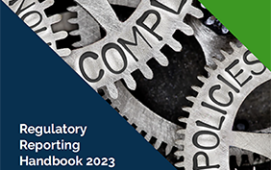The majority of Reference Data Review readers will have to do more with less this year in terms of budget for their data management projects, according to the results of our latest reader poll. The respondents to our January poll indicate that 62% of readers are facing cuts to their budgets for 2009.
The financial crisis has put pressure on financial institutions to deal with critical areas such as compliance and risk management requirements and this may be diverting their budgets from longer term enterprise data management (EDM) projects. Respondents indicated that their budgets for 2009 had decreased significantly, at 31%, or only slightly, also at 31%.
Despite discussions to the contrary at last year’s FIMA conference in London in November, very few institutions’ budgets have remained the same as those granted in 2008, with only 8% of readers indicating they have the same levels of funding.
A surprising 8% of readers have experienced a significant increase in funding, with a further 23% having witnessed a slight increase in data management budget. Perhaps, as indicated by A-Team Group’s recent research into risk management’s impact on data management in collaboration with GoldenSource, the risk function is having a beneficial impact on data management in the case of certain institutions.
The report, “Risk Management Drives Cross-enterprise Data Connections”, highlights the fact that financial institutions are focusing on improving data management practices to support risk management requirements. According to 89% of the respondents to the survey, chief risk officers are focusing on data practices as a way to keep risk in check.
What is certain from these results is that it’s going to be a tough year for the vendor community. With little business about due to spending restrictions, data management vendors are going to have to go that extra mile to get a piece of the action.
The ASP model seems to be a significant area of focus for those in the data management game, as institutions look to outsource their problem areas to vendors and reduce in-house costs. It is likely that these solutions, along with software as a service (SaaS), will be touted for some time to come.
Our next poll is aimed at finding out what is driving firms to invest in the area of data management – is it the threat of reputational damage? Regulatory and compliance requirements? The need to consolidate after mergers and acquisitions (of which there have been many over the last six months)? Operational risk? A case of cost saving measures? Or some other pressure?
Get your voice heard and get involved (see the right hand column and tell us your thoughts).
Subscribe to our newsletter




